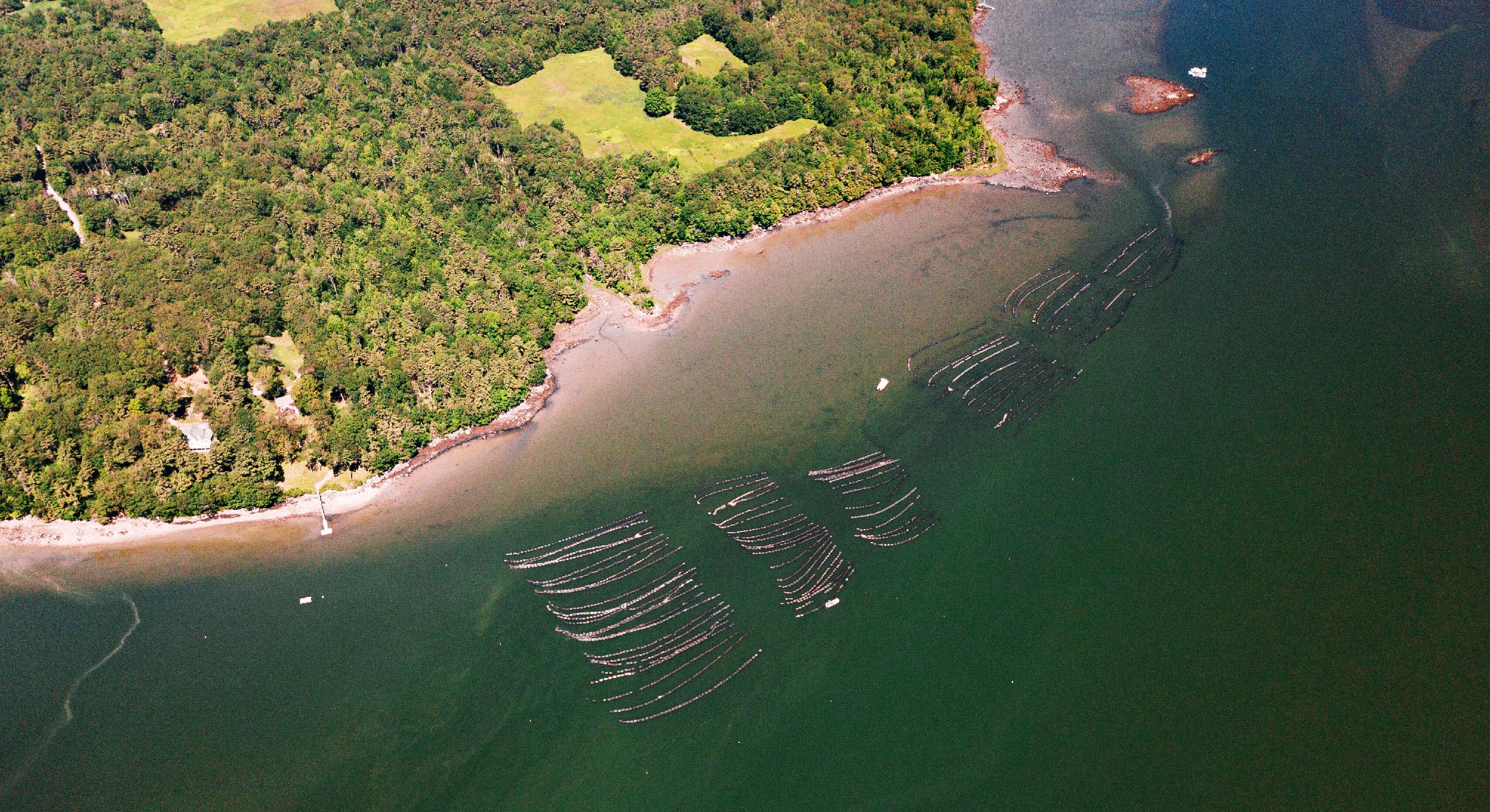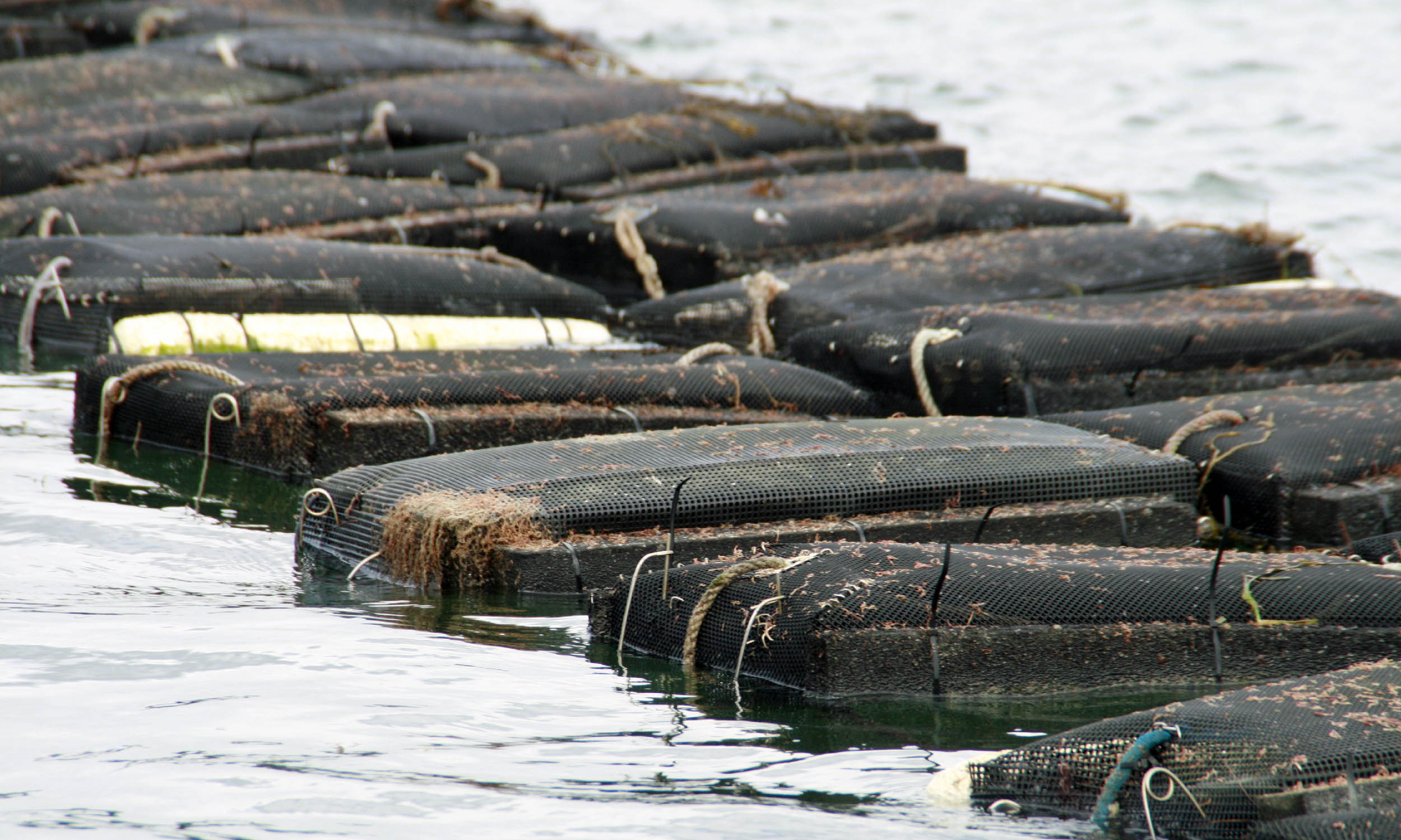
A Living Legacy, How SEANET lives on through its innovations, discoveries, and past participants
By Marcella Silver
In a variety of ways, January 2020 feels as if it were a lifetime ago. For many of those who participated in Maine EPSCoR’s previous Track-1 award, the Sustainable Ecological Aquaculture Network (SEANET), this may feel especially true. So much has been accomplished since SEANET was officially completed in January 2020. Facets of its research and educational programming have lived on through successful spin-off projects, in many cases leveraging SEANET funded facilities expansions at multiple constituent sites, and ongoing collaborations and continued partnerships.
The EPSCoR award’s ability to have its discoveries, research, and impacts continue on after its official end date was an integral part of the original strategic plan. This is especially true of the UMaine Aquaculture Research Institute (ARI) which is officially named as SEANET’s legatee. ARI has achieved increased capacity and innovation as a direct result of SEANET investment.
Faculty and staff at partner institutions such as the Downeast Institute (DEI), the University of New England (UNE), Maine Maritime Academy, Bowdoin College, St. Joseph’s College, the University of Southern Maine (USM), and the University of Maine remain engaged together through a network created and formalized by the SEANET grant, which will yield long term benefits to Maine’s coastal communities.
This is no surprise, given the fact that SEANET was the first multi-year effort in the nation to research sustainable ecological aquaculture (SEASs) and as such, made many valuable discoveries and direct contributions to Maine and the aquaculture industry. The five-year, $20 million grant facilitated expansion within the aquaculture sector and its Workforce Development (WFD) outcomes have gone on to inform sustainable practices among a wide variety of age groups, genders, and occupations.
SEANET’s stakeholders from institutions such as the Maine Aquaculture Innovation Center, Maine Technology Institute, Alliance for Maine’s Marine Economy, the Maine Aquaculture Association, as well as Maine businesses that participated in SEANET research, have also continued to further their expertise as a direct result of SEANET’s innovations and discoveries, thus sharing the award’s accomplishments far and wide.
This is visible through the aquaculture industry’s continued statewide (as well as nationwide and worldwide) growth. SEANET is cited as playing a key role in helping stakeholders and community members alike better understand how sustainable aquaculture can support the state as a whole.
Such impacts have continued to be shared with state legislators and leaders. For example, in February 2021, Maine state EPSCoR Director Shane Moeykens, and SEANET researcher and UMaine Associate Professor of Oceanography, Damian Brady, met virtually with federal legislative offices in Washington, D.C., to share how SEANET research has been inherited and utilized by a wide variety of successors who have gone on to receive additional funding and support.
Some of SEANET’s key projects, such as the LOBO (Land/ Ocean Biogeochemical Observatory) buoy monitoring system, have continued. These buoy systems have been integrated into a water quality (WQ) observation service program that helps RAS (Recirculating Aquaculture System) companies better monitor their outputs and gauge any changes in the environment into which they are discharging. RAS companies have been seen as a way to “revolutionize” Maine’s aquaculture industry, but many Mainers are still uncertain, so the continued supervision via buoy monitoring may help businesses and citizens better understand if, or where, boundaries should be established.
The National Oceanographic and Atmospheric Administration (NOAA) was also a beneficiary of SEANET’s research and discoveries, especially regarding work with remote sensing. NOAA readily makes use of tools and methods that were originally created by SEANET researchers.
In addition, the United States Department of Agriculture (USDA) has recently expanded its research on aquaculture, specifically utilizing experimental systems in order to establish sustainable methods. They plan to invest $5-6 million every five years in aquaculture research. ARI has partnered with the USDA’s named Agricultural Research Service (ARS) and Auburn University in Alabama as a “commitment to an ongoing conversation between researchers and the aquaculture industry to increase production and industry sustainability,” said Meggan Dwyer, Associate Director of ARI and the former Research Coordinator for SEANET, in an October 2020 release.
“The resulting cooperative research agreement, eligible for renewal every five years, was funded by $950,000 from USDA ARS for the first year, and $872,000,000 annually thereafter,” Dwyer explained. “The Aquaculture Experiment Station will harness the expertise of ARI-affiliated faculty in Orono and at UMaine’s Darling Marine Center (DMC), and National Cold Water Marine Aquaculture Center ARS researchers based on the Orono campus, in Franklin and at the University of Rhode Island.”
With high-level backgrounds in aquaculture, the ARI faculty leads, Deboarda Bouchard, Damian Brady and Paul Rawson, work to align work to address USDA ARS priorities, such as alternative feeds for finfish, selective breeding in oysters and “off-flavor” in salmon meat. The experimental station will allow researchers to provide rapid response to industry in a farm and hatchery setting. New research initiatives, focused on genetic improvement of North American Atlantic salmon and the Eastern oyster for aquaculture production, advance the goals of localized selective breeding strategies that improve performance for economically important traits.

New investments at the Darling Marine Center will help develop a scallop hatchery, and UMaine research faculty and extension agents are studying everything from siting and ecosystem dynamics to production methods and bio-economics. A new Scallop Research Collaborative (SRC) was established in order to help researchers and farmers better collaborate around scallops as a resource, fishery, and industry in the rapidly changing Gulf of Maine ecosystem.
As a direct result of SEANET’s success, ARI has also been able to grow its Workforce Development (WFD) capabilities in a variety of ways. This includes the hiring of a new education and outreach coordinator, Scarlett Tudor, the integration of other aquaculture-based curriculum (such as the 4-H aquaponics program and the Maine Sea Grant Aquaculture Educators Group), and the development of a Sustainable Aquaculture Certificate program and summer industry externship program.
ARI has also grown its research capabilities by adding new affiliates and hiring two joint faculty members in fish nutrition research, Michael Habte-Tsion and Matt Hawkyard, and a new aquaculture Innovation specialist at the DMC, Adam St Gelais, who previously served as the SEANET research coordinator at UNE. ARI continues to build upon SEANET infrastructure and networks in order to leverage more funding and build a new Sustainable Aquaculture Facility on campus and establish ARI as a Center of Excellence in Aquaculture.
These types of institutions, programs, collaborations, and funding opportunities are helping Maine to continue its growth in the aquaculture sector in innovative, yet sustainable ways. This is especially true of the new Maine Aquaculture Hub. This collaborative effort is coordinated by by Gayle Zydlewski (director of Maine Sea Grant and UMaine professor of marine sciences), Deborah Bouchard (Director of ARI and the SEANET Research Network), Sebastian Belle (Executive Director of the Maine Aquaculture Association), Chris Davis (Maine Aquaculture Innovation Center), and Teresa Johnson (UMaine Professor of Marine Sciences). All of these collaborators have either worked with or served as stakeholders for the SEANET program. $1,199,996 of a $1.6 million NOAA award was secured in order to jumpstart the hub, which will help build capacity for industry-driven innovation, diversification, and workforce development. This new hub, along with the wide variety of continued research efforts, and newly utilized technologies directly resulting from SEANET, stand as a testament to the long-lasting impacts of a Maine EPSCoR Track-1 award.
